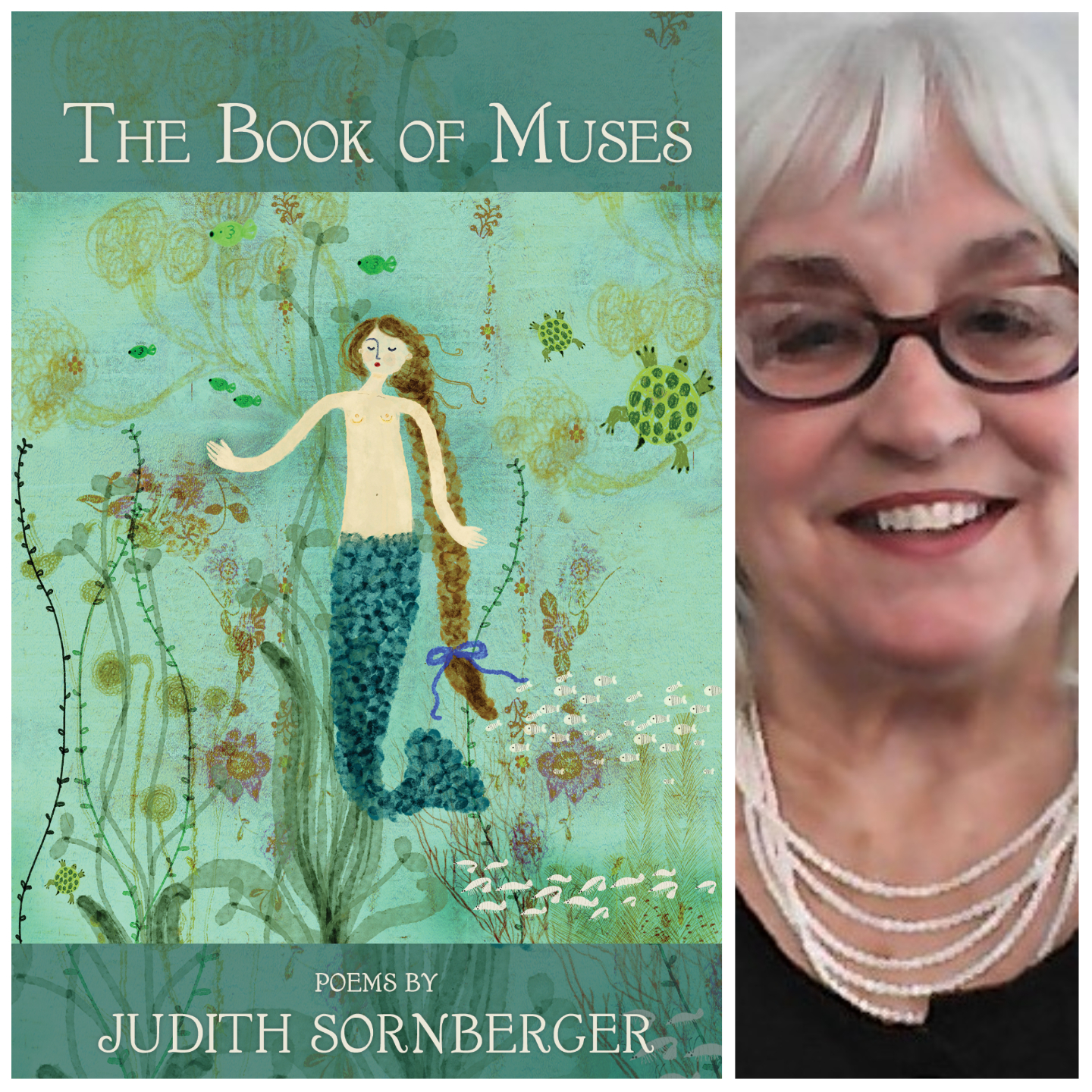Judith Sornberger, in The Book of Muses, invites us to open the door (or the window; or our hearts) and welcome the muse in her many guises. For this whimsical and wise poet, the muse might manifest as a bird, a turtle, a dove, or a snake. Perhaps she will come in the shape of a woman on a bicycle, with “Silver bangles ringing at her wrists.” Or as a black bear “perched like Buddha / on the wooded hill / behind your house.” She might be a witch; a mermaid; a weaver. The muse! She arrives when and how she chooses. And she brings the very gifts you most need. If you are ready for it, she just might bring you “the map of a new beginning.” Who could resist such a treasure? Not I. And I bet not you, either.
–Zee Zahava, former poet laureate of Tompkins County, New York
If ever there was a poet with her finger on the pulse of creation, it’s Judith Sornberger. I read this book of wonderfully unexpected encounters with the muse in a trance of pure pleasure. Whether communing with a black bear, describing a painted turtle laying her eggs, or studying the myriad lives nurtured by a nurse log, the poet reminds us that “everything here speaks of her” and is “an invitation to create / something from what / looks like nothing.” Take the advice given one poem and prepare to “surrender to the enchantment” of this beautiful and celebratory book.
–Alison Townsend, author of The Green Hour: A Natural History of Home
In The Book of the Muse, Judith Sornberger has dramatically upheld Keats’ advice to Shelley to, “load every rift with ore.” This is at once one of her most musically sumptuous and formally inventive volumes. Her Muse is the ultimate shapeshifter, running through her changes, one theophany after another—as doe, painted turtle, bicycling woman, grosbeak, black bear, mermaid, goldfinch, nurse log, and weaver, among others. In “The Muse Is a Witch,” Sornberger tells us, “Everything here speaks of her,” and, on the evidence presented, we believe this is true. In “The Muse, As Garter Snake, Drops You a Line,” Sornberger demonstrates, bodying forth a poem’s emergence: “Yet you feel / the gentle tug, the nibble in the darkness / of something wanting to be born, and your skin prickles like the water’s / as you pull sun-spangled scales / and splashing anguish to the surface.” The poet lands the dream fish of her poem, but it is we, her readers, who, in the process, are hooked—and never more happily so.
–Clif Mason, author of Knocking the Stars Senseless






Reviews
There are no reviews yet.